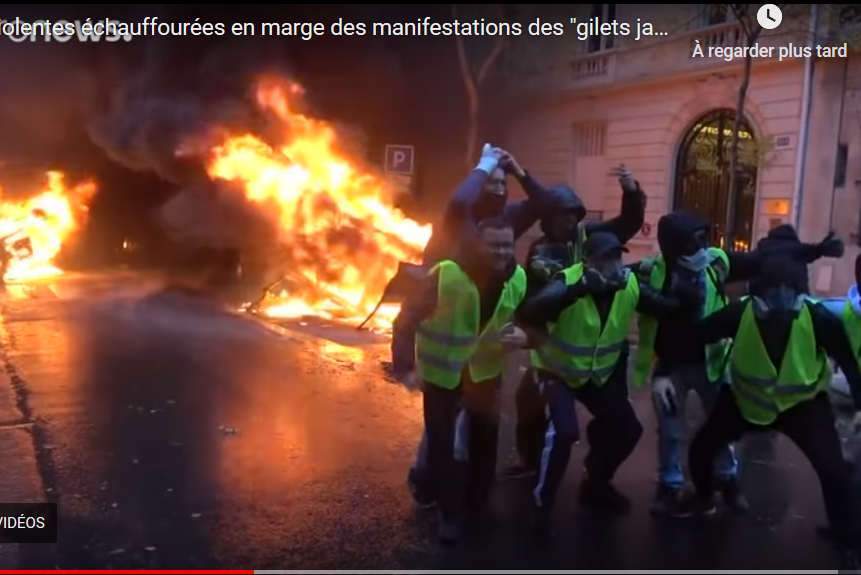“The appeal” of the three major French energy companies in the JDD of this Sunday, June 26, 2022 is disturbing. Because, they say, the upcoming price hike “threatens our social and political cohesion”. How politely these things are said!
The three major French energy companies, Catherine MacGregor, head of Engie, Jean-Bernard Lévy, CEO of EDF, and Patrick Pouyanné, CEO of Total Energies, have issued a clear warning in an article in the Journal du Dimanche. They announce a forthcoming surge in energy prices and call on the French to get used to sobriety.
Increasingly rare
The reasons for the slump are well known: the drop in Russian gas deliveries, tensions on the electricity market (24 of the 56 reactors of the French nuclear park are under maintenance), added to the climatic conditions and the drought which have reduced the hydraulic production. Energy is becoming increasingly scarce, and therefore increasingly expensive. Hence the difficulties to come. The three energy companies remind us, without joking, that “the best energy is the one we do not consume”.
The return of the Yellow Vests
Beyond the joke, the warning is serious. Because, more than anyone else, the French bosses of the three main energy companies know how much the increases in gas, electricity and fuel prices will weigh on the economy in general and on households in particular.
To the point of provoking riots and endangering “our social cohesion”.
Let’s remember the Yellow Vests movement. It began in November 2018 following the increase in fuel prices. Diesel was then at € 1.46 at the pump. Today, the liter of diesel has exceeded both € 2. It is announced to be close to 2.50 € in a few weeks. The increases will be similar for electricity and gas. At these prices, who will be able to drive to work? How will we be able to heat our homes?
At the beginning of the Yellow Vests crisis, in November 2018, we explained that there were nearly 10 million working poor in France and a real divide between the France of the wealthy and the France of the beggars.
At the time, we wrote “The Yellow Vests? These are the French who can’t take it anymore. These low-income earners, these poor people, these pensioners and these workers who earn less than €1,000 per month and who are struggling to make ends meet, to pay for ever more expensive fuel, ever higher rents, insurance and everything else that is inexorably increasing while wages remain miserable.”
The war in Ukraine
Four years and two elections later, nothing, or almost nothing, has changed. Macron has remained in the Élysée Palace.
The Assembly has been filled with deputies from the far right and the far left. But a majority of French people have shunned the ballot box to show that they no longer believe in these blustering and ineffective politicians. It is useless to remind that what is not said in the ballot boxes, is said in the street.
The Russian-Ukrainian war has changed the situation. Everyone remembers the boasts of the Minister of Economy, Bruno Le Maire, on March 14, 2022, after a new round of sanctions from Russia: “We will cause the collapse of the Russian economy.” Three months later, we see where the Russian economy and the French economy stand. Vladimir Putin must be laughing.
“An economic hurricane is coming”
Reasons to worry are also coming from abroad. As we published on June 14, Jamie Dimon, the head of the largest American bank, JPMorgan Chase, warns “an economic hurricane is coming“.
He denounces the negative effects of the pandemic and the war in Ukraine, but also an irresponsible and criminal policy of the Federal Reserve and Congress “who know that an economic and financial tsunami is in the making.”
Another warning, more recent, is that of Magdalena Martullo-Blocher, the boss of EMS Chemie and vice-president of the SVP, the first Swiss party. In the German press, she expressed concern about the impact of sanctions against Russia in Europe and Switzerland.
What does she say? That it is necessary to negotiate, quickly, with Putin on gas deliveries and peace in Ukraine. This is an obligation for European leaders, if they do not want to drag with them “the whole continent into the abyss of a major energy crisis, causing in turn a gigantic economic, financial and social crisis, the consequences of which no one, to this day, can foresee.
All the indicators are red. Autumn will be hot, very, very hot!

